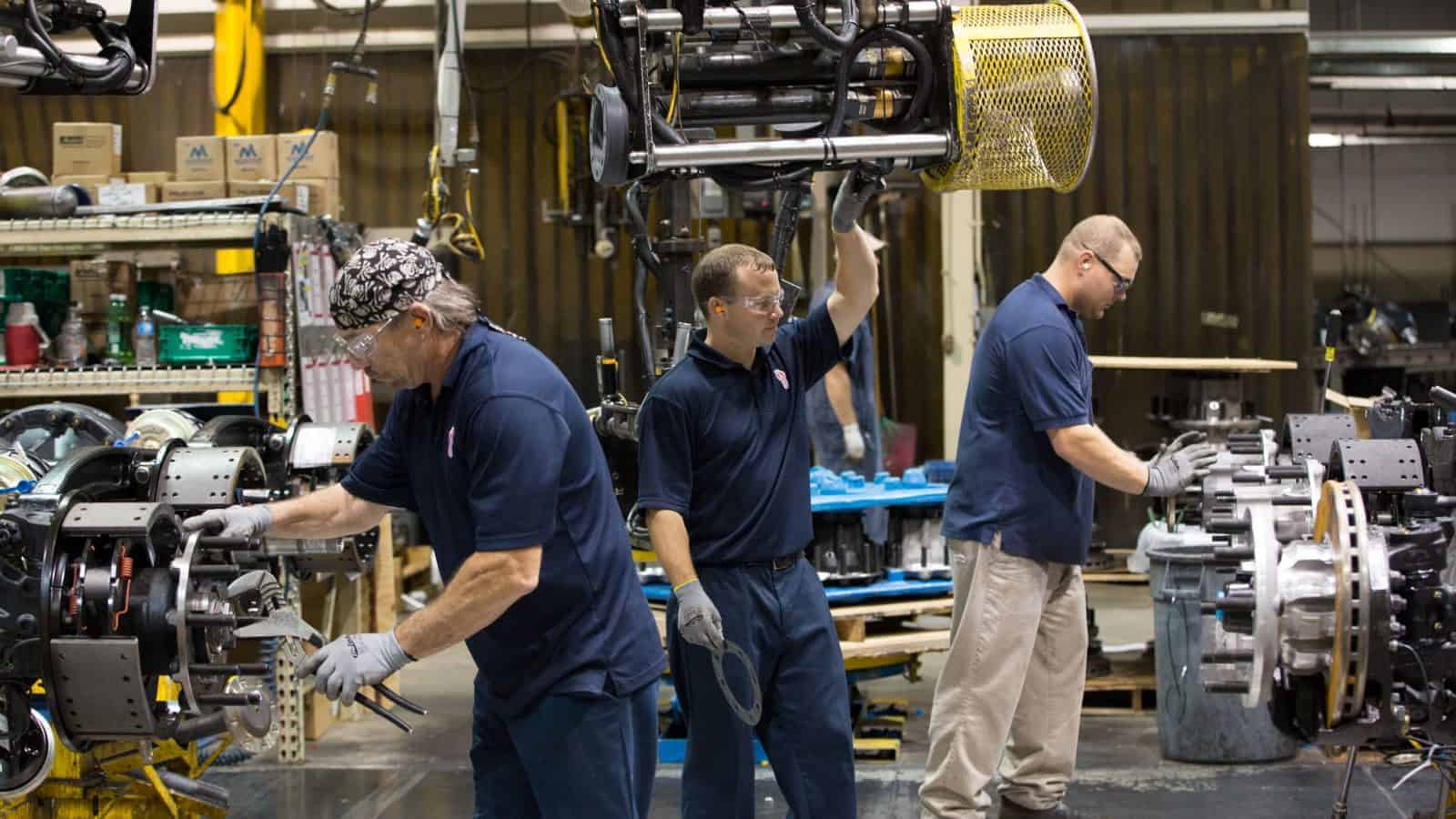Manufacturers: Walkaround Rule Exceeds OSHA’s Authority
Washington, D.C.: Following the release of the Occupational Safety and Health Administration’s recent rulemaking on the Worker Walkaround Representative Designation Process, National Association of Manufacturers Chief Legal Officer Linda Kelly released the following statement:
“Today’s rule does nothing to advance OSHA’s mission of ensuring safe working conditions. Forcing businesses to accommodate third parties with no safety expertise in their facilities infringes on employers’ property rights, invites new liabilities and introduces elements of chaos and disruption to safety inspections.
“By unlawfully expanding third-party access to manufacturers’ worksites, this proposal clearly violates OSHA’s statutory mandate to conduct inspections within ‘reasonable limits and in a reasonable manner’ with ‘minimum burden’ on employers, and potentially violates manufacturers’ constitutional rights. And, for the first time, OSHA would determine who qualifies as an ‘authorized representative’ of employees, which until now has been exclusively recognized as the jurisdiction of the National Labor Relations Board.
“This is another clear example of the federal regulatory onslaught—a proposal that upends settled precedent and ignores the reasoned decision-making required by the Administrative Procedure Act. For these reasons, the NAM will be considering legal action to reverse this incredibly destabilizing decision.”
-NAM-
The National Association of Manufacturers is the largest manufacturing association in the United States, representing small and large manufacturers in every industrial sector and in all 50 states. Manufacturing employs nearly 13 million men and women, contributes $2.85 trillion to the U.S. economy annually and accounts for 53% of private-sector research and development. The NAM is the powerful voice of the manufacturing community and the leading advocate for a policy agenda that helps manufacturers compete in the global economy and create jobs across the United States. For more information about the NAM or to follow us on Twitter and Facebook, please visit www.nam.org.
Baltimore Bridge Collapse to Hit Shipping, Port Jobs
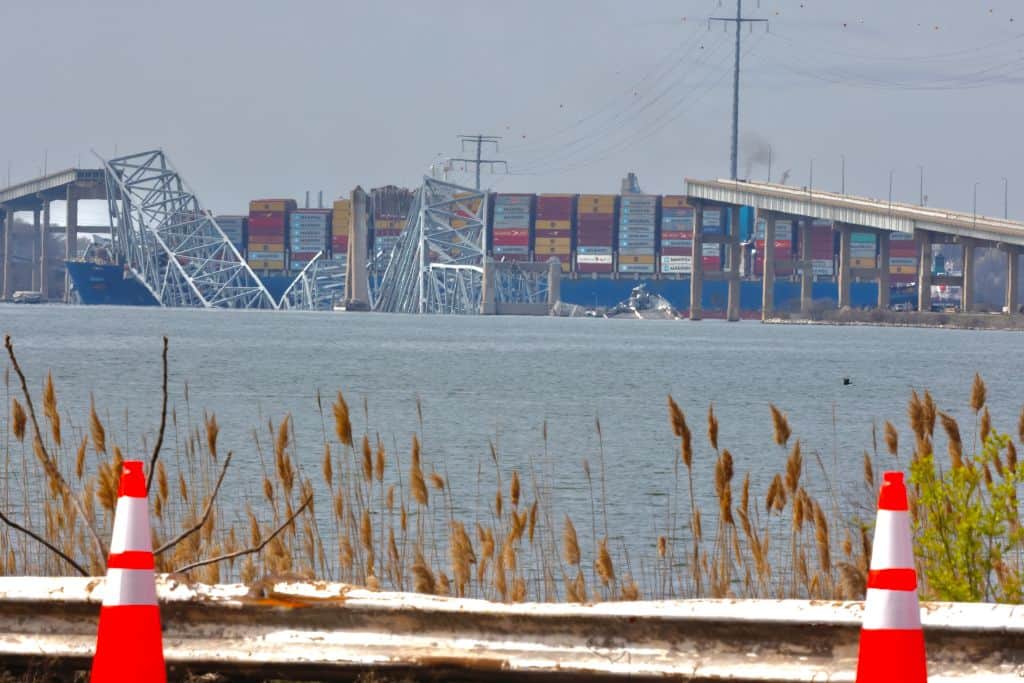
Vessel traffic in and out of the Port of Baltimore—which contributes $15 million a day in economic activity, Business Insider reports—was suspended Tuesday after a container ship hit the Francis Scott Key Bridge in the early morning. The collision caused the bridge to collapse, sending at least seven vehicles and their occupants into the Patapsco River, according to the Baltimore Sun (subscription).
What’s going on: “Officials, who spoke amid a continuing and massive search and rescue mission, said the port was not shut down and remained open to process trucks inside terminals.”
- Other ports are likely to be able to absorb container ships headed for Baltimore, The New York Times (subscription) reports.
Why it’s important: “The port, which generates more than 15,300 direct jobs, had rebounded from global supply chain difficulties and disruptions during the coronavirus pandemic and hit records last year for handling cargo,” according to the Baltimore Sun. “It is the nation’s 16th busiest port, ranking first for volume of autos and light trucks, roll-on/roll-off heavy farm and construction machinery, imported sugar and imported gypsum.”
- Baltimore is the closest Atlantic port to major Midwestern manufacturing hubs.
- Truckers are concerned about increased congestion resulting from the closure, “particularly because deliveries such as hazardous material loads cannot travel through Interstate 895 or I-95 tunnels.” Trucking companies are already warning customers of delays for shipments going through the Mid-Atlantic, according to The Wall Street Journal (subscription).
- In addition to affecting consumers in the Baltimore area, the traffic stoppage is likely to affect jobs at the port.
Q&A: What You Need to Know on Tax Policy
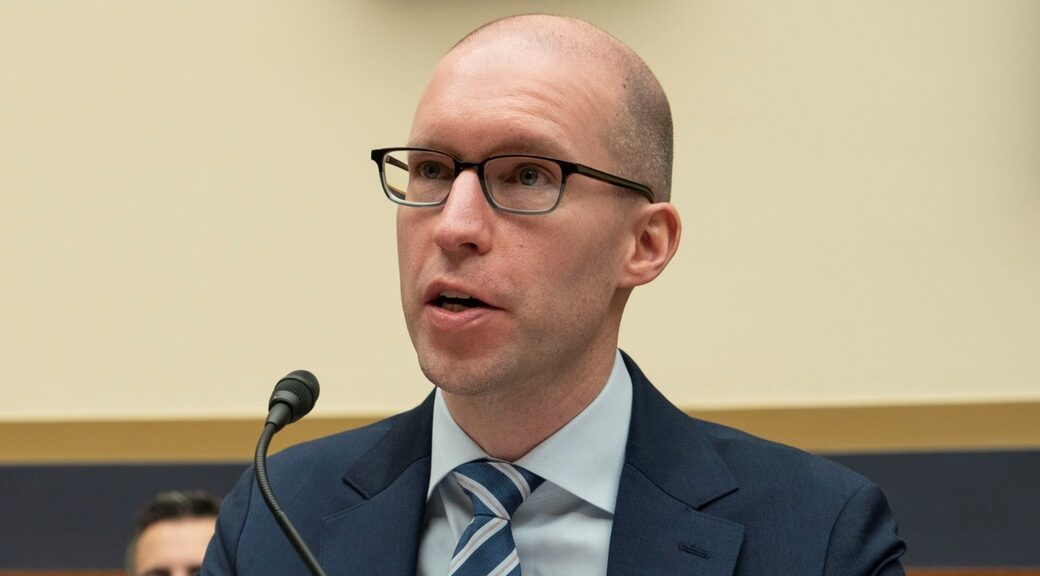
Earlier this year, the House passed the Tax Relief for American Families and Workers Act, and the bill is now with the Senate to consider. NAM Vice President of Domestic Policy Charles Crain discusses what’s included in the bill, why the provisions matter to small and medium-sized manufacturers, other tax policies the NAM is focusing its advocacy efforts on and how SMMs can get involved.
Q: There is a major tax package moving through Congress. Can you explain what is included in the legislation?
Crain: “The Tax Relief for American Families and Workers Act includes three of the NAM’s top tax priorities: the ability to immediately deduct domestic R&D expenses, enhanced interest deductibility on business loans and the ability to fully deduct the cost of capital investments in the year acquired (full expensing). All three of these provisions were implemented by the 2017 Tax Cuts and Jobs Act.”
Q: What exactly are these provisions and why do they matter to SMMs?
Crain: R&D – “For almost 70 years, the U.S. tax code allowed businesses to fully deduct their R&D expenses in the same year they were incurred. But starting in 2022, businesses were required to deduct those expenses over a period of years, making it more costly to conduct R&D in the U.S.”
Interest Deductibility – “Many manufacturers need to borrow funds to finance long-term investments in equipment and facilities. The interest that businesses pay on these loans is generally tax deductible, subject to a cap. Prior to 2022, the cap was based on a company’s earnings before interest, tax, depreciation and amortization (EBITDA); now, it’s based on a company’s earnings before interest and tax (EBIT). Lowering the cap limits the amount of interest that companies can deduct—effectively imposing a tax hike on manufacturers that finance job-creating capital projects.”
Full Expensing – “Manufacturing is a capital-intensive industry. The TCJA allowed companies to immediately deduct 100% of the cost of equipment and machinery in the year purchased—called ‘full expensing.’ But full expensing began to phase out in 2023; it’s currently down to 60% and will be completely eliminated by 2027. That significantly increases the after-tax cost of capital equipment purchases.”
Q: Why is it important for Congress to restore these tax provisions for SMMs?
Crain: “These are provisions that manufacturers, especially SMMs, use to grow their businesses and compete globally. The tax code must be fair and consistent. The first step is addressing these crucial issues.”
Q: What other tax policies is the NAM focusing its advocacy efforts on?
Crain: “We are in the middle of a three-part story. If the TCJA was the first part of the trilogy, the second act is the Tax Relief for American Families and Workers Act—and the grand finale will come in 2025, when many other TCJA provisions expire. Changes that will impact SMMs at the end of 2025 include the expiration of the 20% pass-through deduction, increases in individual income tax rates and a reduction of the estate tax exemption threshold. Without congressional action, this would affect the laws in effect for tax year 2026 and beyond. For SMMs organized as corporations, the corporate tax rate could also be at risk. The NAM is already pushing back, and we know manufacturers are ready to pull out all the stops to prevent them from taking effect in 2026.”
Q: Where can SMMs find more information, and how can they get involved?
Crain: “The NAM has created online action centers for R&D, interest deductibility and full expensing with information on why these issues remain important. NAM members are encouraged to check out these action centers for tools and resources they can use to contact lawmakers on these issues. They need to hear from you! You can also reach out directly to NAM Senior Director of Tax Policy Alex Monié.”
Q: What else do SMMs need to know?
Crain: “There is an old saying in D.C.: ‘Tax bills are hard.’ We have gotten the Tax Relief for American Families and Workers Act through the House, but more work needs to be done in the Senate. And the next 20 months will be an all-out sprint to prevent damaging tax increases from taking effect at the end of 2025. The NAM was successful with the TCJA in 2017—and, I believe, will be successful both this year and next—thanks to our members. Your stories are absolutely crucial to showing that manufacturers kept our promises following tax reform’s passage—and illustrating the economic damage that will happen if R&D expensing, interest deductibility and full expensing aren’t revived this year, or if tax increases are allowed to hit SMMs in 2026. Please reach out to your membership adviser, or to Alex, to share any stories, feedback or ideas as we continue to advocate for pro-growth tax policies for manufacturers in America.”
NAM: Make Employer-Sponsored Health Insurance Easier

Manufacturers are committed to providing employer-sponsored health insurance to their workers, the NAM told Congress late last week—and that’s why any changes made to the Employee Retirement Income Security Act of 1974 should facilitate rather than hamper those offerings.
What’s going on: “ERISA underpins manufacturers’ ability to provide health insurance to their employees,” NAM Vice President of Domestic Policy Charles Crain said in response to a call by the House Committee on Education and the Workforce majority for comments on how to improve ERISA as the law’s 50th anniversary nears.
- “The law allows manufacturers to provide uniform benefits to workers located across multiple states, and to tailor those benefits to meet the unique needs of their workforces.”
Why it’s important: Manufacturers have continued to offer high-quality health care plans to their employees—even absorbing cost increases in recent years to keep premiums affordable—but they “increasingly find their efforts to be responsible stewards of their health plans undermined by the complexities, bureaucracy and ineffective design of the broader health care system,” Crain told the committee.
What should be done: It is ERISA’s federal preemption of state and local laws that allows manufacturers to offer uniform health benefits, Crain continued, and that preemption must be preserved.
- “Eroding or eliminating preemption would make it significantly more difficult for manufacturers operating in multiple states to offer their employees health insurance because the manufacturer would be forced to comply with cumbersome and potentially conflicting state-based rules, a costly and untenable situation,” he said.
- In addition to maintaining ERISA preemption, Congress should seek to “make health care data more accessible and user-friendly for employer plan sponsors,” and reduce regulatory burdens on employers.
- Given that pharmacy benefit managers contribute to the increasing costs of providing employer-sponsored health care, the NAM also continues to call for PBM reform to increase transparency into these underregulated actors.
Extend Pro-Growth Tax Policies, Small Manufacturer Tells Senate
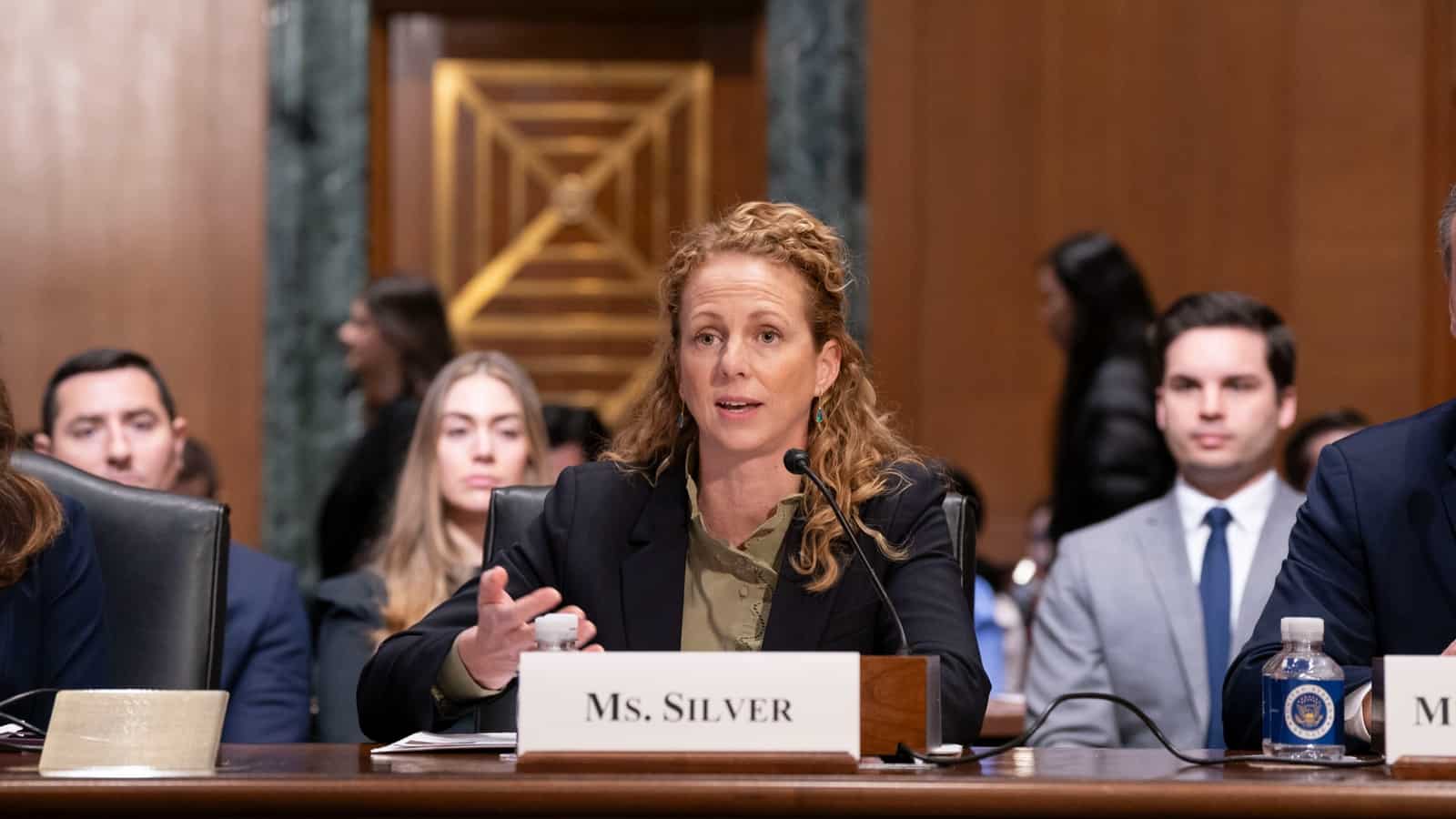
If manufacturing is a team sport, the rules of the game are the U.S. tax code—and to ensure a level playing field for everyone, that code must remain constant, Ketchie President and Owner and NAM Small and Medium Manufacturers Group Chair Courtney Silver told the Senate Finance Committee Tuesday.
The main way to do it, she said, is by restoring three key tax policies: immediate expensing for domestic R&D, enhanced interest deductibility and full expensing.
What’s going on: Thanks to the 2017 Tax Cuts and Jobs Act, Silver’s family-owned, North Carolina–based precision machining company and many other manufacturers were able to grow their companies, invest in workers and give back to their communities, Silver said in testimony during the “American Made: Growing U.S. Manufacturing Through the Tax Code” hearing.
- But two years ago, “the rules of the game began to change, making it more difficult for manufacturers to thrive in America,” she went on. “Crucial policies began to expire.”
Why it’s important: If Congress does not act soon, additional pro-growth tax cuts will expire, further harming manufacturing in the U.S.
- And “more tax increases are on the way,” Silver told committee members, referring to the additional TCJA provisions scheduled to expire next year. “Other critical provisions expire at the end of 2025, which will have a direct impact on the manufacturing sector. Ketchie will be directly harmed by the loss of the pass-through deduction, the increases in our tax rates and the reduced protection from the estate tax.”
Unstoppable combination: The 2017 tax reforms, “paired with pro-growth policies like immediate expensing of capital investments, drove historic growth in the manufacturing sector,” Senate Finance Committee Ranking Member Mike Crapo (R-ID) said during the hearing, citing NAM data on the significant, positive impact of the cuts.
- Indeed, “Ketchie might not be here today if we did not have the economic boom caused by tax reform in the years prior to the pandemic,” said Silver, who called immediate expensing for domestic R&D expensing, enhanced interest deductibility and full expensing “a game-changer for the manufacturing industry.”
Team players: Congress must restore these three provisions and other critical provisions that are set to expire next year.
- “Manufacturing truly is a team sport, and you are all on that team,” Silver told the committee. “Small companies like mine are counting on you to play with us rather than against us, and to ensure that our tax code does the same.”
- The NAM has called on the Senate to advance the House-passed Tax Relief for American Families and Workers Act, which would restore the three key tax policies.
A Merck Manufacturer Leads the Way

For Alexandra Bryant-Boose, being a mentor matters—because she’s seen firsthand what good mentorship can accomplish.
From a mentor at a homeless shelter where she and her mother lived for a time, to an eighth-grade science teacher who pointed her toward a scholarship at an engineering summer program, she is grateful for all the people who helped guide her in the right direction.
- “There were so many experiences where someone gave me an opportunity,” Bryant-Boose said.
Today, as an automation specialist at Merck Manufacturing Division, part of Merck in Durham, North Carolina, Bryant-Boose is paying that opportunity forward, making sure that others are able to find their passion and achieve their dreams.
Discovering manufacturing: Bryant-Boose graduated from North Carolina State University with a degree in chemical engineering, a concentration in biomolecular engineering and a double minor in microbiology and biotechnology.
- When the COVID-19 pandemic hit, she began looking at careers at Merck, and in her words, just stumbled onto automation. After doing some research, she was hooked.
- “Automation is like playing investigative journalism or being a detective,” said Bryant-Boose. “Sometimes there’s a problem and no one will know what the issue is—and automation is about looking into the nitty-gritty, getting a little dirty and opening up a system to find what the issue is. That way of thinking and working is what makes me enjoy what I do.”
Educating young people: In 2022, Bryant-Boose launched a project designed to spread opportunities in science, technology, engineering and math to young people who might not otherwise be able to learn about those subjects.
- She started small in 2022, with a program at a local middle school. Last summer, in collaboration between the Society of Women Engineers and Durham Parks & Recreation, the project grew into a STEM summer camp with about 30 Merck volunteers.
- “We hosted 90 kids in three locations who all got that face-to-face interaction with Merck employees,” she said. “It was a lot of work to organize, but it was good to pay it forward. I’m giving kids someone to look up to and helping them figure out where they might go.”
Promoting support: Bryant-Boose is also a talent acquisition lead for the League of Employees of African Descent at Merck. The internal group, which offers both mentoring and reverse mentoring—in which younger employees provide advice and knowledge to executive team members—gives her a chance to both advise and be advised.
- “I like being able to give people advice that I wish I had,” said Bryant-Boose. “At the end of the day, it’s good to be around people who can relate to things you’re going through. And I find that LEAD allows me to do that at Merck.”
Gaining recognition: Recently, Bryant-Boose was named an Emerging Leader in manufacturing by the 2024 Women MAKE Awards, a distinction for a select few women under the age of 30 who have achieved unique accomplishments at the start of their careers in manufacturing.
Offering advice: Some of Bryant-Boose’s best advice is to encourage people— especially women—to find their own mentors.
- “I know coming into what’s historically been a male-dominated field can be intimidating,” said Bryant-Boose. “If you’re a woman considering manufacturing, or actively getting into it, find that person who can be your mentor. Claim them. Go to them when you need someone to talk to.”
Go deeper: To see the full list of 2024 Women MAKE Award Honorees and Emerging Leaders, click here. To learn more about the Women MAKE Awards, click here, and to learn more about the MI’s free Women MAKE Mentorship Program, click here or contact the team at [email protected].
Biden Touts Accomplishments, but Misses the Mark Elsewhere
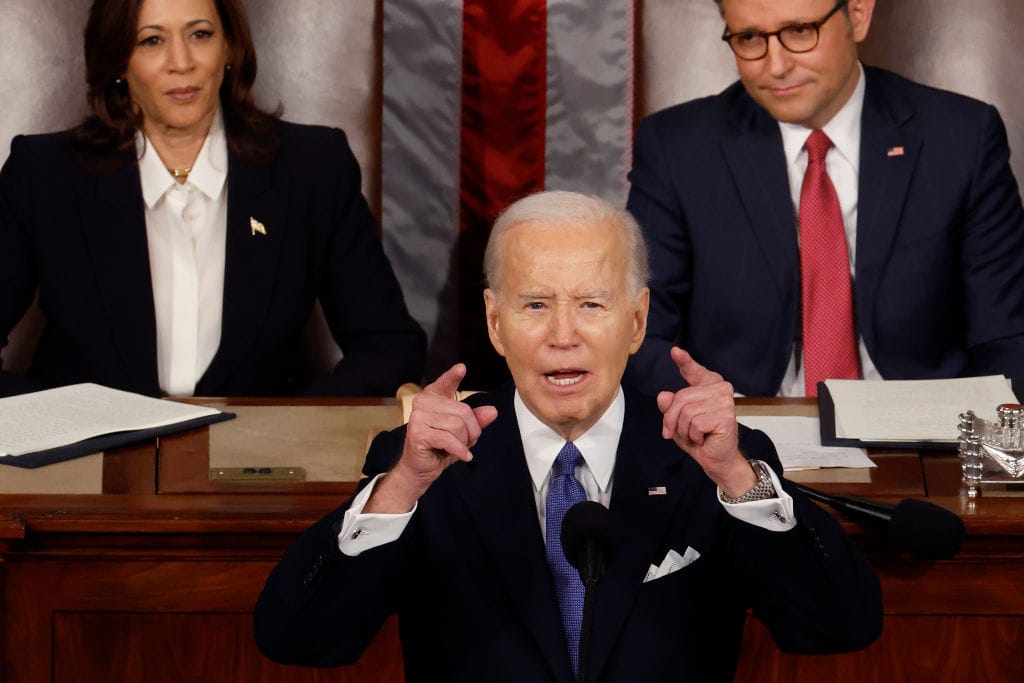
In his State of the Union address Thursday, President Biden rightly celebrated manufacturing’s accomplishments—but he “missed the mark in several key areas,” according to NAM President and CEO Jay Timmons.
What happened: President Biden has reason to be proud when it comes to certain manufacturing-critical pieces of legislation, Timmons said, and the president touched on these in his speech.
- “On my watch, federal projects like helping to build American roads, bridges and highways will be made … creating good-paying American jobs,” President Biden told the audience, referring to the NAM-supported Bipartisan Infrastructure Law. And “[t]hanks to my CHIPS and Science Act, the United States is investing more in research and development than ever before.”
- The NAM has been a vocal supporter of CHIPS, which has supported large and small businesses all along the supply chain through an infusion of funds to boost much-needed domestic semiconductor production.
- And the president stood strong with the people of Ukraine and in defense of democracy, two areas in which the NAM has been consistent and unwavering in its own support. “Overseas, Putin of Russia is on the march, invading Ukraine and sowing chaos throughout Europe and beyond. … But Ukraine can stop Putin if we stand with Ukraine and provide the weapons it needs to defend itself. That is all Ukraine is asking.”
No new taxes: But the president also laid out some wrongheaded plans for America, manufacturers and the economy, the NAM said, such as his push to raise taxes on manufacturers.
- “If the cost of manufacturing in America is driven up by his agencies’ continued regulatory onslaught and a successful push to raise taxes, investment will be driven overseas and Americans will be driven out of work,” said Timmons, who appeared on Bloomberg’s “Balance of Power” ahead of the speech to discuss manufacturing priorities.
Protect U.S. innovation, competitiveness: In addition, the Biden administration’s push to invoke so-called “march-in” rights—which would allow it to seize the patents of any innovations it deems too highly priced in the event those patents had been developed in any part with federal money—would “rob Americans and the world of future cures and chill research into new breakthroughs across the manufacturing industry,” Timmons continued.
- “And if President Biden continues to heap blame on pharmaceutical manufacturers, rather than reining in pharmacy benefit managers with cost-saving reforms, Americans and their employers will continue to endure rising health care costs.”
What should happen: The president and manufacturers in America “share a profound commitment to democracy and to the values that have made America exceptional,” Timmons went on.
- A surefire way to restore faith in the democratic system is for Democrats and Republicans to prove it still works—“by delivering smart policies for the American people and by bolstering the industry that is the backbone of our economy and improves lives for all.”
SEC Finalizes Scaled-Back Climate Rule
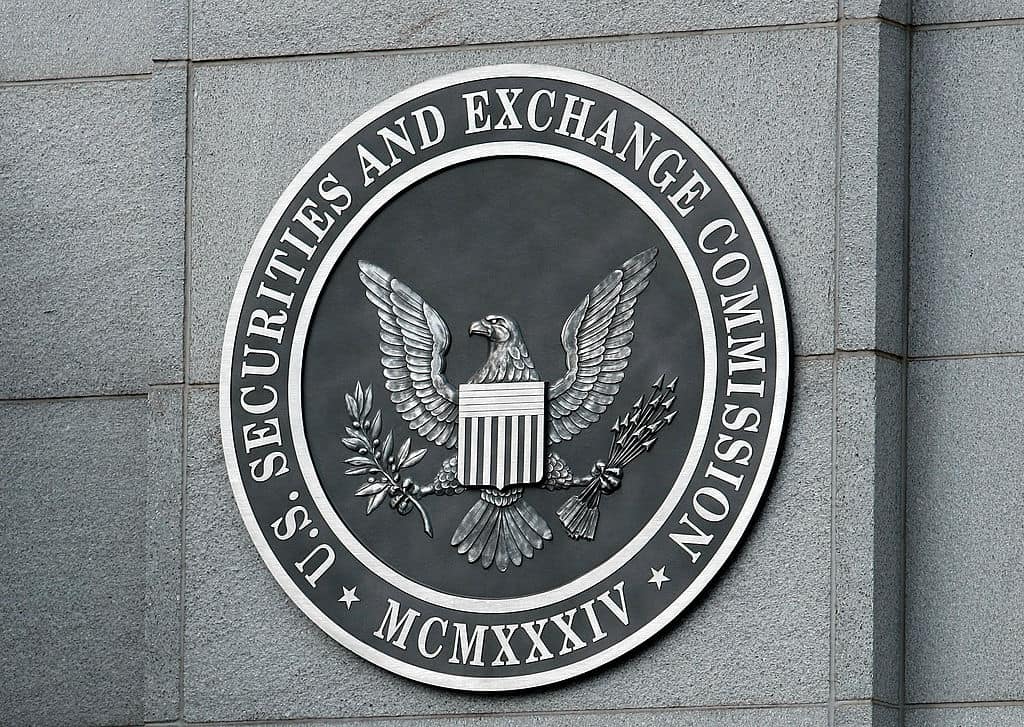
The Securities and Exchange Commission has approved new climate disclosure requirements that have been in the works for the past two years. Changes made to the rule represent progress for manufacturers—though the industry will still face new cost burdens, the NAM said Wednesday night.
What’s going on: The SEC voted Wednesday in favor of requiring public companies to disclose greenhouse gas emissions and other climate-related information. Thanks in part to ongoing NAM advocacy—which Law360 (subscription) covered this week—the agency dropped its onerous, unworkable Scope 3 emissions mandate.
- That provision would have forced public companies to divulge information about emissions coming from anywhere in their supply chains—including from small and family-owned businesses.
Heeding the NAM: “The NAM demonstrated for the SEC the practical realities of such a sweeping proposed rule, encouraging the SEC to make significant changes to remove inflexible and infeasible mandates, require disclosure only of material information and protect small manufacturers from the impact of these requirements,” NAM President and CEO Jay Timmons said following the vote.
Key changes: In addition to the Scope 3 change, the SEC exempted smaller public companies from Scope 1 and Scope 2 emissions reporting and delayed the rule’s effective dates. The final rule also is more narrowly focused on so-called “material” information (data investors need to make informed decisions) than what had been proposed previously.
Keeping a close watch: The final rule “remains imperfect,” Timmons continued. “[A]nd it remains to be seen whether the rule in its entirety is workable for manufacturers.”
- “The NAM remains committed to ensuring the SEC acts within its statutory authority, prioritizes flexibility and provides much-needed guidance—just as we are committed to providing leadership in addressing environmental challenges. This is why the NAM is keeping all options on the table as we evaluate the rule’s potential impacts on the manufacturing sector.”
NAM, Allies File Suit Against EPA Over Air Standard
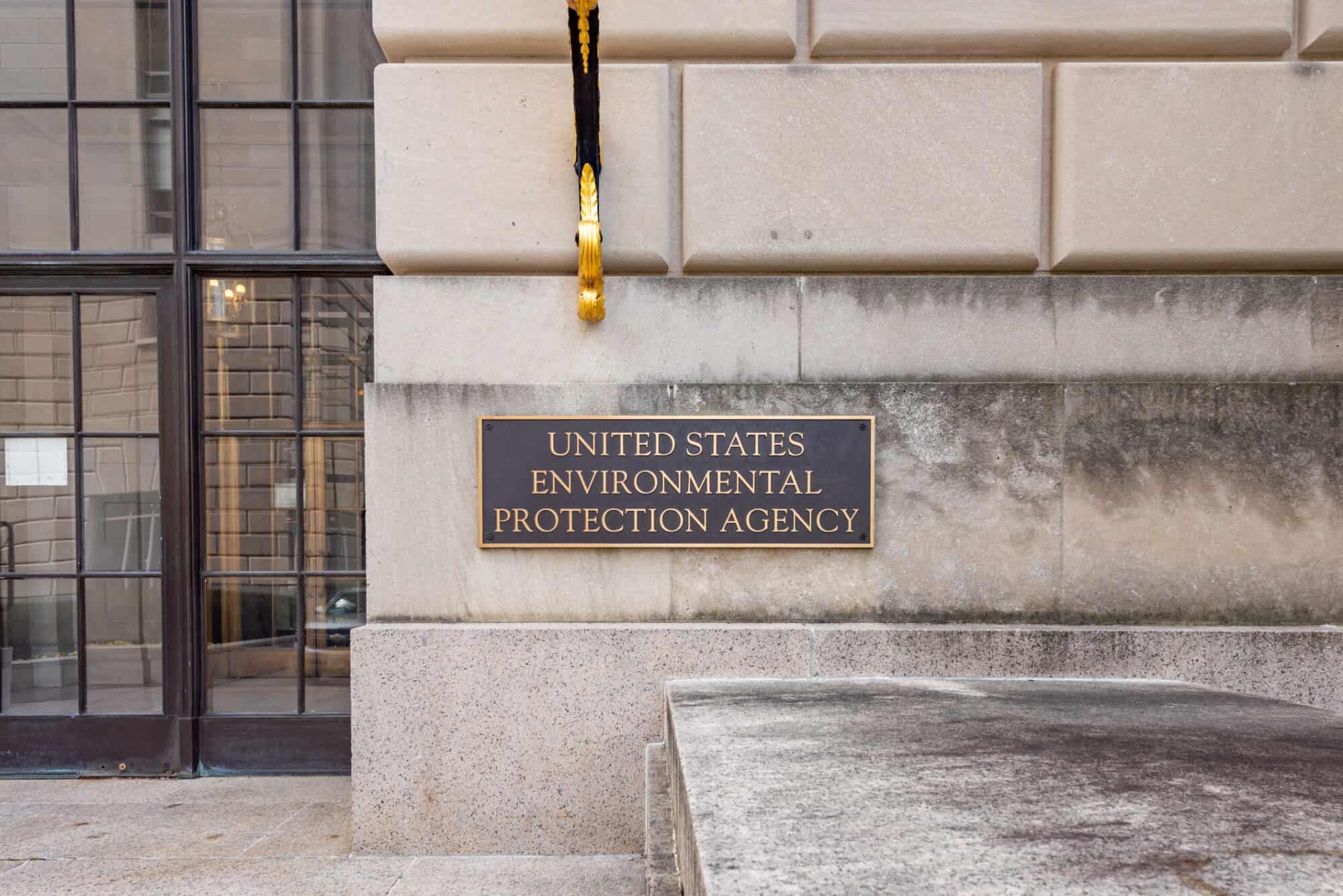
The NAM and seven association partners have filed suit against the Environmental Protection Agency to challenge the office’s overly stringent, recently finalized rule on particulate matter, or PM2.5, the NAM said Wednesday.
What’s going on: The eight groups filed suit in the D.C. Circuit to push back on the EPA’s National Ambient Air Quality Standards rule, which last month it lowered from 12 micrograms per cubic meter of air to 9, a 25% reduction and a stifling burden on manufacturers, the NAM said.
- “In pursuing this discretionary reconsideration rule, the EPA should have considered the tremendous costs and burdens of a lower PM2.5 standard,” said NAM Chief Legal Officer Linda Kelly. “Instead, by plowing ahead with a new standard, the agency not only departs significantly from the traditional NAAQS process, but also gravely undermines the Biden administration’s manufacturing agenda—stifling manufacturing investment, infrastructure development and job creation in communities across the country.”
- Participating in the suit with the NAM—which has repeatedly urged the EPA against overtightening the standard—are the American Chemistry Council, the American Forest & Paper Association, the American Petroleum Institute, the American Wood Council, the U.S. Chamber of Commerce, the National Mining Association and the Portland Cement Association.
Why it’s important: If it’s enacted, the stricter PM2.5 standard would cost businesses and the U.S. economy huge sums, hampering company operations and job growth and forcing tough choices on states and towns nationwide.
- The total cost of complying with the new acceptable concentration level could be as much as $1.8 billion, according to the EPA’s own estimates—and that number could go up.
- What’s more, it would make the U.S. less competitive globally. “Europe’s current PM standard is 25; China’s is 35,” NAM Managing Vice President of Policy Chris Netram told the House Energy and Commerce Subcommittee on Environment, Manufacturing and Critical Materials last month. “If we want the next manufacturing dollar to be spent in America rather than abroad, a standard of 9 is simply not feasible.”
NAM in the news: The New York Times (subscription) covered the lawsuit.
Previewing the State of the Union
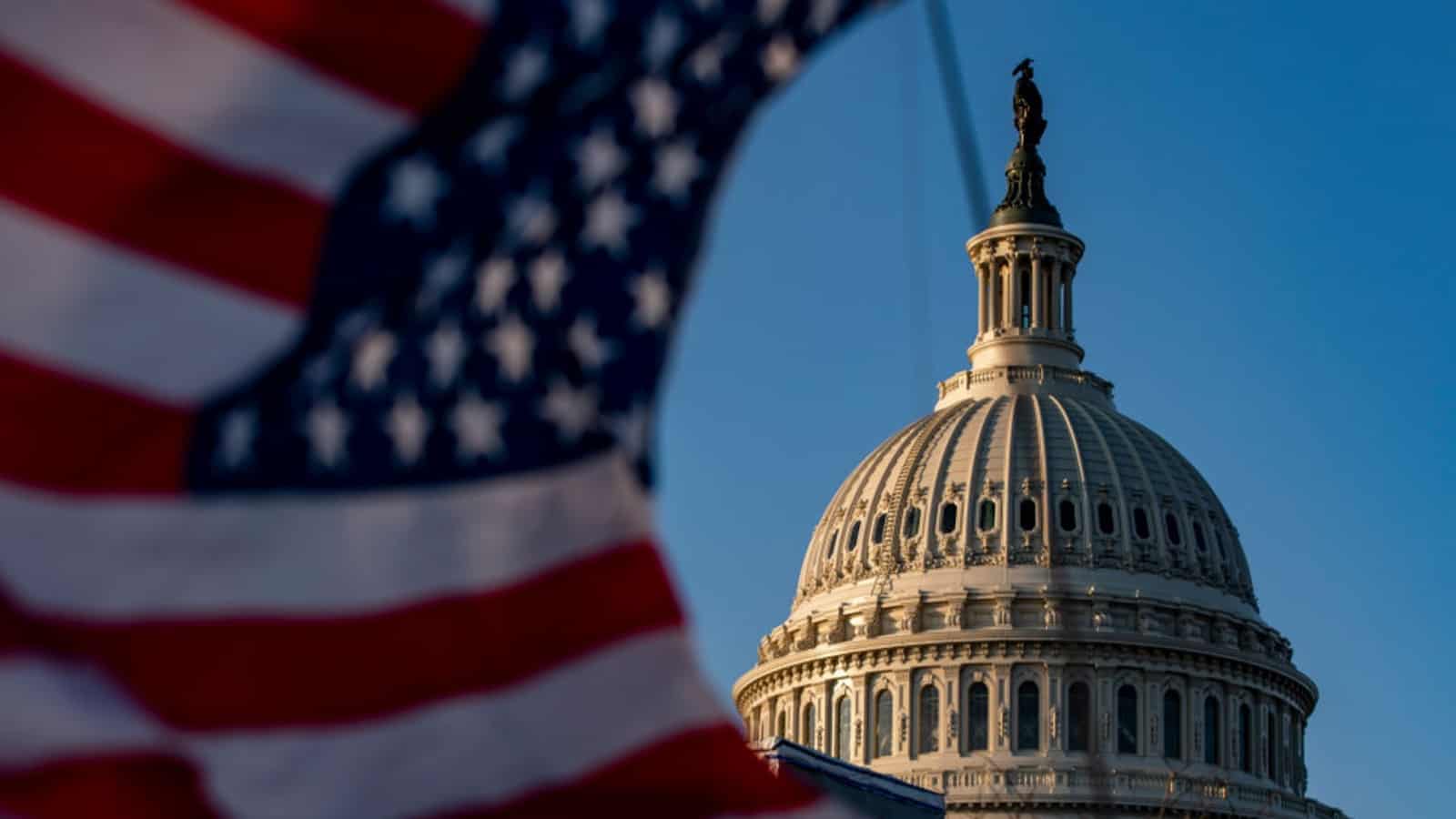
With President Biden set to deliver the State of the Union address Thursday, manufacturing is likely to be in the spotlight once again. At the NAM, we will be listening closely for our key priorities—those that have been achieved and those still in progress.
Promises kept: President Biden has been a partner on a range of issues that are key to manufacturers across the United States. We hope he will outline how pro-growth legislation has helped set the stage for manufacturing growth, with industry employment reaching a 15-year high.
- CHIPS Act: The CHIPS and Science Act marked a major push to boost manufacturers’ competitiveness, supporting large and small businesses up and down the supply chain by investing in domestic semiconductor production and funding programs to support the STEM workforce, advanced technology development, excavation of critical minerals, clean energy and more.
- Bipartisan Infrastructure Bill: President Biden secured a bipartisan $1.2 trillion infrastructure bill, a long-sought, major achievement for manufacturers throughout the country, offering transformational upgrades and significant investments in America’s manufacturing capabilities.
- Inflation Reduction Act: Some of the provisions in the Inflation Reduction Act supported manufacturers across the United States, with direct investments and tax credits generating a major increase in manufacturing construction and jobs.
- Ukraine: The Biden administration has been unwavering in its support of Ukraine. The NAM—which in March 2022 passed a unanimous resolution denouncing Russia’s invasion of the country—has kept the pressure on Congress to pass the stalled Ukraine aid bill.
Progress to come: But this progress will be undermined if the Biden administration continues to issue onerous regulations and call for policies that make it harder to innovate, invest and expand in America. The NAM is working hard to push back against items that would harm manufacturers and encourage the president to refrain from pursuing policies that will make us less competitive.
- Taxes: The NAM is pushing back against any new taxes or attempts to increase tax rates on manufacturers, and we are pressing for tax policies that will make it easier to invest in the future—including the “tax trifecta” found in the recently House-passed Tax Relief for American Families and Workers Act. The NAM urges the Senate to approve these business tax provisions quickly.
- Protecting intellectual property: Late last year the administration proposed invoking “march-in” rights to seize the patents of any products it deems too costly—if those innovations were developed in any part with federal dollars. This move, which would open the door to similar actions in other sectors of manufacturing, would undermine manufacturers’ IP rights, disincentivize early-stage entrepreneurship and dissuade capital investment, all of which could jeopardize our ability to develop future cures. This is just one example of how actions that undermine manufacturers’ IP can have dangerous unintended consequences.
- Regulations: Burdensome rules—such as the tighter National Ambient Air Quality Standards from the Environmental Protection Agency and the Department of Energy’s recent freeze of liquefied natural gas export permits—are preventing manufacturers from creating jobs and harming U.S. competitiveness. We need to end the regulatory onslaught and give manufacturers the chance to grow.
- Energy: Manufacturers in America are at the forefront of the planet’s work to reduce emissions and promote sustainable energy. But to be effective, we need to embrace an all-of-the-above energy strategy that uses the fuel we have while developing the tools we need.
- Immigration: Immigration and border security reforms must be a priority for the administration and Congress. Inaction poses significant economic risks—especially at a time when manufacturers have 600,000 open jobs. Manufacturers are leading on bipartisan solutions, like those found in our A Way Forward plan.
The last word: “Our commitment is to work with anyone, and I truly mean anyone, who will put policy—policy that supports people—ahead of politics, personality or process,” said NAM President and CEO Jay Timmons. “Because here’s what I know: Manufacturers are building an incredible future for our country and our world. And we need partners in the federal government who will work with us to reduce burdens on manufacturers and manufacturing workers, rather than creating barriers to our success.”
Learn more: For more information on the state of manufacturing, check out the 2024 NAM State of Manufacturing Address here.
